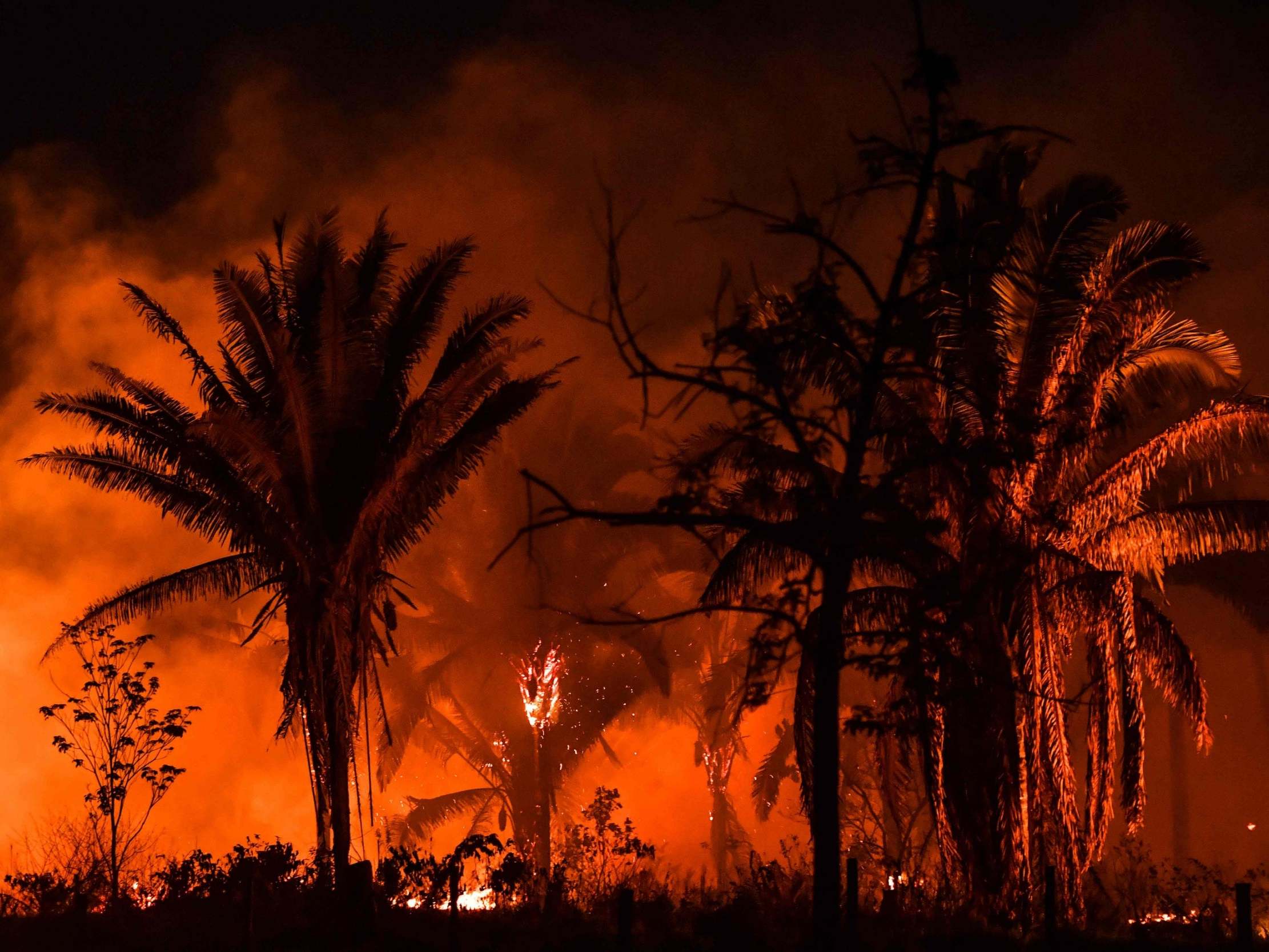New species of monkey just discovered in Amazon could be made extinct by raging fires
Fires now burning through range of marmoset found in only one corner of Brazilian state

Your support helps us to tell the story
From reproductive rights to climate change to Big Tech, The Independent is on the ground when the story is developing. Whether it's investigating the financials of Elon Musk's pro-Trump PAC or producing our latest documentary, 'The A Word', which shines a light on the American women fighting for reproductive rights, we know how important it is to parse out the facts from the messaging.
At such a critical moment in US history, we need reporters on the ground. Your donation allows us to keep sending journalists to speak to both sides of the story.
The Independent is trusted by Americans across the entire political spectrum. And unlike many other quality news outlets, we choose not to lock Americans out of our reporting and analysis with paywalls. We believe quality journalism should be available to everyone, paid for by those who can afford it.
Your support makes all the difference.A completely new species of marmoset monkey that was discovered just weeks ago, is now believed to be at significant risk due to the fires which continue to burn through the Amazon rainforest.
The Mico munduruku marmoset is unusual because of its white tail and hands. Typically the creature has black tails.
It is only believed to live within an area approximately 55,000 sq km (21,200 sq miles) within Pará State in Brazil's southwest.
The creature was discovered in August by Rodrigo Costa Araújo and his colleagues at the National Institute of Amazonian Research and the Federal University of Amazonas in Brazil.
Now they fear the fires which are continuing to rage in the area are a direct threat to the new species’ survival.
The catastrophic blazes have devastated the landscape on an unprecedented scale. Combined with illegal logging, agricultural expansion and new energy and infrastructure projects, the natural habitat of countless creatures is rapidly being permanently destroyed.
In some cases the accelerated destruction is taking place just as we are becoming aware of what we are losing.
One fire runs directly through the newly-found marmoset’s range, Mr Araújo told charity Flora & Fauna International, citing Nasa satellite data.
“Once these forests are gone, the marmosets will be gone too," he said. "And this year’s fires are burning much more habitat of all southern Amazonian marmosets than in past years.”
Mr Araújo added the setting of the fires which have swept through swathes of the Brazillian Amazon this year was “politically motivated”.
He said this was not a year of reduced rainfall and drier conditions which increase fire risks.
The prices of soy crops and beef had not drastically risen to prompt farmers to clear more agricultural land, he added.
“The obvious conclusion is that the 2019 fires are politically motivated, with farmers supporting the agenda of the president against environment and biodiversity conservation. And the president is in turn supporting these people on the ground," he said.
He said Brazil's right wing president Jair Bolsonaro had "been systematically dismantling the country’s framework for monitoring and preventing deforestation, cutting the budget of the national environment agency, refusing absolutely vital international support … and proposing the relaxation of environmental
However, he added that the discovery of the new marmoset could have a positive impact by causing a review to be held into the construction of major hydroelectric power plants, which are all within the species’ range.
He said: “This region has hardly been studied and its biodiversity is poorly known, so having a new primate species described from there clearly demonstrates that we are destroying the habitat of many other, still undiscovered species.”
Join our commenting forum
Join thought-provoking conversations, follow other Independent readers and see their replies
Comments